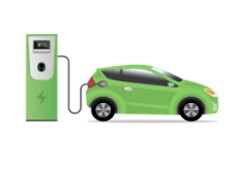Global climate change is undoubtedly one of the greatest problems of our time with its consequences negatively affecting the environment and all living creatures in the ecosystem. The question of how to combat such a problem with such far-reaching implications bears critical importance. In this context, international actions led by the UN, EU, and the US are being taken. It is possible to say that Turkey is also following these developments - albeit a little behind1.

One of Turkey's most recent steps to combat climate change is the Climate Council ("Council") convened in Konya, one of the Turkish provinces that most affected by the climate change, on February 21 to 25 under the leadership of the Ministry of Climate Change2. Although the Council had been assembled latest February, the final declaration3 ("Declaration") was released on June 27, 2022 after long efforts.
The Declaration, in line with the Paris Agreement and Turkey's 2053 zero emission and green development targets, includes 217 decisions under main headings, such as Climate Compatible Cities, Climate-Friendly Agriculture, Drought Action Plan, Green and Clean Transportation Network, Green Energy, Green Economy, and Climate Education.
The Declaration was an important step towards harmonization between Turkey and the EU, especially regarding the Carbon Border Adjustment Mechanism ("CBD") applications and the European Green Deal ("EGD") and is a concrete example of Turkey's active efforts in this field. We've previously evaluated the shaping effect of the European Green Deal on global trade and what steps Turkey should take in this context in our articles4.
Another noteworthy aspect of the Declaration is the explicit mention of Turkey's goal of utilizing modern technologies such as artificial intelligence, machine learning, autonomous energy management systems, Internet of Things (IoT), big data repositories, and blockchain to reduce global warming.
Although the Declaration covers a wide range of issues, in this article we will focus on energy transition, electrification and hydrogen use in transportation, carbon pricing and emissions trading system in the framework of compliance with the Green Deal, which we regard as crucial in terms of regulation and public policy
Energy Transition
Shifting the paradigm in energy to make it greener and more sustainable is of utmost importance in the fight against the climate crisis. Turkey, which owes more than 70% of its greenhouse gas emissions, one of the triggers of global warming, to the energy sector, needs to adopt a more environmentally friendly energy model in order to reach its net zero emission target in 20535. In this context, we see that various decisions have been taken in the Declaration. These decisions, whose details can be seen in the Declaration, can be briefly summarized under the following headings:
- Supporting technology development and production in renewable energy, ensuring system integration, encouraging self-consumption,
- Evaluating carbon capture technologies in coal in terms of energy diversity and utilizing alternatives such as natural gas, nuclear, etc,
- Expanding energy efficiency practices and supports in all sectors, and implementing digital transformation, storage, and demand-side applications,
- Implementation of Green Organized Industrial Zone (OIZ) and Green Industrial Zone certification system,
- Establishment of the necessary infrastructure to identify, measure, analyse, and manage climate-related financial risks by 2024.
Electrification and Hydrogen Use in Transportation
Since transportation accounts for a large share of greenhouse gas emissions worldwide and is among the most important causes of climate change, the transportation sector has a vital place in energy consumption. This trend needs to be reversed in order to realize climate protection targets. It is essential to implement policies that increase energy efficiency in transportation systems to achieve this.

However, with today's renewable energy solutions only able to address 1/3 of carbon emissions, and the remaining 2/3 mostly generated by sectors such as manufacturing, steel, and cement, which cannot be fully addressed with the tools at our disposal, Breakthrough Energy founder Bill Gates states that (green) hydrogen will act as a "Swiss Army Knife"6.
We can see that the Declaration contains decisions in this regard:
- A Hydrogen Strategy and Roadmap should be prepared,
- Support and incentives should be provided for transportation modes (rail, maritime, etc.) and infrastructure works, and Intelligent Transportation Systems (ITS) services should be implemented,
- The use of alternative fuel vehicles should be widespread,
- The electrification ecosystem in transportation should be evaluated as a whole and holistic policy and incentive mechanisms should be established, and battery systems and charging infrastructure, as well as the energy generation and distribution infrastructure to support them, should be developed simultaneously with the electricity sector,
- Infrastructure requirements for hydrogen-fuelled vehicles should be determined and new generation smart, integrated, and high-speed charging technologies (dynamic charging, integrated charging infrastructure, etc.) should be developed,
Carbon Pricing and Emissions Trading System within the Scope of Compliance with the Green Deal
We have already elaborated on the EU's Border Carbon Regulation and how it will affect Turkey in our article7. The issues of Carbon Pricing and Emissions Trading System ("ETS"), which are emphasized in the Declaration, will be fixtures in harmonizing with the policies of the EU, which accounts for more than 40% of Turkey's total exports.
Indeed, under the Green Deal, the EU plans to no longer enter into new trade agreements with countries that have not ratified the Paris Agreement or are not implementing it effectively. Therefore, it is inevitable for Turkey to harmonize with such regulation of the EU, which ranks first in our total exports, and considers as a benchmark in its trade relations. The steps planned to be taken in this context in the Declaration are generally as follows:
- Establishment of an Emissions Trading System (ETS) in Turkey that also considers environmental integrity in line with the National Contribution Declaration (NDC) to be updated within the framework of the 2053's Net Zero Emission Target,
- Conducting technical studies on the reflections of the relevant acquis in Turkey, taking into account the EU Carbon Border Adjustment Mechanism,
- At least 50% of the procurement revenues to be obtained within the scope of the Emission Trading System will be used to support activities aimed at reducing greenhouse gas emissions, especially modernization and innovation-oriented activities targeting the green transformation of the real sector,
- In determining the sectors to be included in the scope of Article 6 of the Paris Agreement, preparation of national position document by evaluating the mitigation potential, marginal mitigation costs
- Considering the establishment of a fair transition mechanism for sectors that will be adversely affected in the context of the 2053 net-zero emission target, transferring a portion of the revenue from the Emissions Trading System and other carbon pricing mechanisms to this fair transition mechanism.
What Should Companies Do?
The economic consequences, incentives, and support linked to these steps taken on climate change create an economic rationale for companies to become important actors in the fight for sustainability.
It is crucial for companies to follow incentive and support programs when investing in related fields, and to conduct a sustainability analysis for the sectors in which investments are planned. Furthermore, choosing environmentally friendly areas would be financially beneficial, as preferring renewable energy sources over fossil fuels would reduce carbon emissions, lowering the cost of the carbon tax.
We can say that comprehensive legislative work is underway to implement these decisions. At this point, it is necessary to ensure compliance with these regulations and to continuously monitor this compliance in order not to be affected by possible administrative fines. It is essential that companies' compliance teams identify the risks arising from these regulations and take accurate measures to minimize them.
What Steps Turkey Should Take?
It would be beneficial to reduce carbon emissions in parallel with the decisions taken and commitments made for a sustainable and environmentally friendly industrial transformation. In this way, Turkey can gain an advantageous position in the European market compared to its competitors and increase its market share in exports. To achieve this, both the private sector and the government need to find common ground and act in cooperation.
In this context, as a matter of priority, completing the preparations for the Climate Law as soon as possible, with the participation and opinions of relevant stakeholders, will be a crucial step for Turkey to reach its sustainability goals.
Nevertheless, we are of the opinion that it is vital to take urgent action on the decisions taken at the Council and to ensure that they are not lengthened out but become a component of public policy.
Besides, we expect Turkey to revise its 2015 declaration of intent under the Paris Agreement, which envisages a 21% reduction in greenhouse gas emissions by 2030 compared to the reference scenario, according to the status quo.
As we have outlined above, there is still a long way to go for Turkey in the fight against climate change. In this vein, we will wait and see what kind of transformation Turkey will go through in following years.
Footnotes
1 We had previously provided our thorough analysis on the ambiguous position of Turkey regarding the incorporation of Paris Agreement to domestic law in Climate Change Mitigation – The Paris Agreement, Turkey's Ambiguous Position, And Need For Policy Change In Various Areas
2 Ministry of Environment, Urbanisation and Climate Change
3 Bkz. https://iklimsurasi.gov.tr/public/images/sonucbildirgesi.pdf
4 Please see. Yeşil Mutabakat dünya ticaretini şekillendirirken Türkiye ne yapacak? and Avrupa Birliği Yeşil Mutabakatı ve İhracatımıza Etkileri
5Turkish Statistical Institute (2020), Greenhouse Gas Emission Statistics. https://tuikweb.tuik.gov.tr/PreHaberBultenleri.do?id=33624
6 Please see. To cut emissions, use this Swiss Army Knife | Bill Gates (gatesnotes.com)
7 Please see. Yeşil Mutabakat dünya ticaretini şekillendirirken Türkiye ne yapacak?
The content of this article is intended to provide a general guide to the subject matter. Specialist advice should be sought about your specific circumstances.


